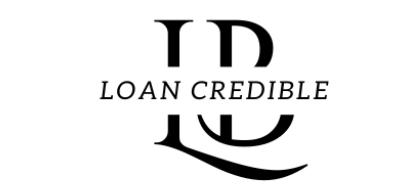[ad_1]
You’ve in all probability heard in regards to the significance of a funds over time. Perhaps your private finance trainer went over it in highschool or your dad was all the time at his desk protecting the funds each Saturday morning. However what’s a funds . . . actually?
At the moment, we’re taking a deep dive into the world of budgeting to reply each budgeting query you would presumably have. Let’s soar in.
Table of Contents
What Is a Funds?
A funds is a written plan on your cash. Easy sufficient, proper?
Effectively, it’s typically simpler stated than performed. However while you decide to doing a written funds each single month on goal, it truly will get simpler and simpler.
Rising up, you in all probability thought a funds was simply your mother and father’ means of reining in your spending while you requested to go to the films—a number of occasions per week. In any case, “cash doesn’t develop on timber, you recognize.”
Here’s the truth: A funds truly provides you permission to spend. Surprising, isn’t it? So, as a substitute of simply seeing a funds as an inventory of what you possibly can and may’t spend, it’s essential to take a look at it as your cash’s sport plan for the month—as a result of spending each greenback you make (and questioning the place all of it went) will get fairly previous. A funds provides you the chance to make a plan and spend your cash on the belongings you actually care about.
Start budgeting with EveryDollar today!
Fairly cool, huh?
What Varieties of Budgets Are There?
Ask anybody on the road what sorts of budgets exist, and also you may hear one thing new each time. As an illustration, some sensible man may inform you they use the “pillow” funds, which simply means they hope to have a pillow of money left over every month. (Information flash: That’s not a funds.)
Bear in mind, a funds is a written plan on your cash. And positive, your model of written may be an app, spreadsheet in Excel, or good ol’ pen and paper—it doesn’t matter. What issues most is that it’s an actual funds and that you simply’re truly doing one each month earlier than the month begins!
Listed here are 4 sorts of budgets individuals use to plan their spending . . . don’t fear, we’ll share our favourite too.
1. 50/30/20 Rule
The 50/30/20 rule relies off of percentages (which is sweet), however doesn’t depart a whole lot of room to sort out your debt (which isn’t so good). With this technique, 50% of your earnings goes towards your wants, 30% goes towards desires, and 20% goes towards financial savings. Yep—you learn that proper . . . 20% of your earnings goes towards financial savings. This type of funds assumes you care solely about saving cash—not paying off debt. And we’re not happy with that.
2. 60% Resolution
With this technique, you’re combining all of your desires and wishes into 60% of your funds and saving the opposite 40%. Sounds higher than the 50/30/20 rule, proper? Not so quick. That 40% will get divided up into particular financial savings classes: 10% goes towards retirement, 10% to long-term financial savings, 10% to short-term financial savings, and the final 10% to “enjoyable.”
Whereas this technique may enchantment to first-time budgeters, it’s not nice for the long run. Not solely is the road between needs and wants slightly too blurry, you’re additionally dividing your financial savings a lot that you simply gained’t make any actual progress towards your targets.
3. Reverse Budgeting
Most budgeting strategies have you ever spending first and saving final. However with the reverse funds, you’re doing the precise reverse. With reverse budgeting, you’ll put aside cash for saving and investing earlier than you funds for issues like housing, gasoline, meals, insurance coverage, debt and the nonessentials. We love the emphasis on financial savings first right here, since we consider you need to have a starter emergency fund of $1,000. However we additionally consider debt is the subsequent factor it’s essential to sort out (particularly earlier than you get into investing).
4. Zero-Based mostly Budgeting
That is our private favourite. A zero-based budget is when all your earnings minus all your bills equals zero. If you happen to’re slightly squirmy studying that, we get it. However a zero-based funds doesn’t imply you’ve got zero in your checking account. It simply signifies that you’re giving each single greenback a reputation and a job to do.
It means you get to determine how a lot cash you put toward debt and financial savings each single month—so that you don’t have to fret about it after you’ve already spent most of your paycheck. A zero-based funds places you answerable for your cash . . . not the opposite means round.
The Greatest Solution to Funds
Zero-based budgeting is the confirmed technique for budgeting. It’s your monetary sport plan for the approaching month, each month. And while you stick to it, you’ll hit your cash targets very quickly.
Right here’s the way it works: All the cash going out must be the identical quantity as the cash coming in. So, in the event you make $5,000 a month, you’re giving all $5,000 a job: paying payments, saving money, paying off debt, and dwelling life! If you add in each supply of earnings after which subtract each single expense, your funds ought to find yourself at zero.
Right here’s an essential callout: Whereas your funds ought to hit zero, your checking account ought to by no means hit zero. Hold slightly buffer of about $100–300 in your checking account, relying on what works for you.
Your funds ought to hit zero each single month since you’re budgeting all these greenback payments. Each. Single. One. Something that’s “further” doesn’t keep further. Put it to good use working for you—each final greenback of it. That’s the way you get your cash actions according to your money goals.
And guess what? It’s means simpler to funds while you’ve obtained a budgeting device. Not solely that, but it surely’s means, means simpler when that device is cell and constructed on the zero-based budgeting technique. (That’s EveryDollar.)
Why Budgeting Is So Essential
These previous couple of years have proven the world the tough actuality of what occurs when the sudden hits: job losses, paycheck-to-paycheck living. Individuals are seeing the actual must have money stowed away in an emergency fund.
However analysis from The State of Private Finance examine by Ramsey Options reveals that six out of 10 individuals in America nonetheless don’t do a month-to-month funds. And of the 40% who’re budgeting, simply one-third of them began previously yr.1
You’re employed too dang onerous to only surprise the place your cash goes each single month. If that’s you, you’re not alone—78% of Individuals live paycheck to paycheck.2 However you don’t should reside that means! If you get on a budget, you gained’t have ideas like, Why can’t I pay my freaking payments each month? I make an excessive amount of to be this broke.
And in the event you’ve tried budgeting earlier than and gave up, strive once more. It may be slightly rocky beginning off, however keep it up. (It takes a number of months to get the kinks labored out.) When you get the cling of it, you’ll see why doing a budget is so price it.
And guess what? We’ve obtained a free budgeting device that may make it easier to get heading in the right direction along with your cash and monetary targets. Based on analysis from Ramsey Options, EveryDollar helps the typical family discover $332 within the first month of their funds. Rating!
High Excuses for Why Folks Don’t Funds
All proper, so that you’ve in all probability heard (or made) loads of excuses for why you possibly can’t or shouldn’t funds. We’ve too. Let’s see if there’s any fact behind these six budgeting excuses.
Excuse #1: Budgeters don’t have any enjoyable.
Hear, budgeting doesn’t imply you possibly can by no means spend cash. It means you make a plan for how you spend cash so you are able to do it like a accountable grownup. So, sure, you must budget for the fun stuff. And you need to all the time funds for the belongings you want earlier than all of the belongings you need. But it surely’s not enterprise or pleasure—it’s each!
Excuse #2: Budgeters should be good at math.
You don’t should be a mathlete to do a month-to-month funds. Everybody must funds—whether or not you’re left-brained or right-brained. If you happen to don’t love math, there’s an app for that (and we know a good one).
Excuse #3: Solely individuals battling their cash want a funds.
Not so quick. Everybody wants a funds. A funds helps you are taking management of your cash, get on monitor along with your cash targets, and knock debt out of your life eternally.
So, even in the event you’re doing fairly good with managing your cash, a funds will present you the place you may be losing your hard-earned {dollars}. The ethical of the story is . . . regardless of in the event you’re on the wrestle bus or feeling fairly good about your funds—a funds remains to be for you. And get this: We discovered that the majority new budgeters felt like they obtained a elevate once they began budgeting for the primary time!
Excuse #4: Budgeting takes an excessive amount of time.
Something price investing in takes time (together with your funds). With regards to your cash, you possibly can’t afford to not spend time budgeting—your monetary success will depend on it. Plus, give it some thought this manner: Would you moderately spend time worrying about all of your cash issues or simply take the time to make a plan and really resolve them? Yeah . . . we thought so.
Excuse #5: Budgets are just for individuals who don’t have debt.
We’ve stated it earlier than and we’ll say it once more . . . everybody wants a funds, regardless of in the event that they’re as much as their eyeballs in debt or swimming in millions of dollars in money. A funds is how you retain monitor of your cash and ensure you’re within the driver’s seat of the place it’s going. It helps you with all of your monetary targets—particularly paying off debt. Bear in mind: A funds provides you freedom to spend (whereas additionally ensuring you’re not throwing your cash away each month).
Excuse #6: A funds is just too inflexible.
Doing a funds doesn’t imply you can’t spend. It truly provides you permission to spend your cash on the issues that matter essentially the most. However what’s essential to you this month may be decrease in your precedence checklist subsequent month. The perfect factor a couple of funds is that you simply get to name the pictures.
Methods to Begin Budgeting
Now that we’ve gotten the justifications out of the best way, it’s time to start budgeting. However how? (We didn’t carry you this far to go away you at the hours of darkness!) Let’s get to it.
Step 1: Write down your whole earnings.
This implies your whole take-home pay after tax. And in the event you’re married, write your partner’s earnings down too. Don’t neglect to incorporate your different streams of earnings (like a second job, social safety checks, or that money present from Grandma).
Step 2: Listing all your bills.
Give
The very first factor it’s essential to funds for is giving. That’s proper. Even in the event you’re in debt or have some intense targets on your cash, giving comes first. If you happen to’re simply beginning out, give slightly till you can begin giving lots. It modifications who you might be while you reside with an open hand.
Save
And now that you simply’ve budgeted for generosity, it’s time to maneuver on to saving. If you happen to’re nonetheless in debt, you’re solely going to save lots of till you hit $1,000 (on your starter emergency fund). Then, you’re going to chop again on saving till you’ve paid off all your debt.
Spend
Now, it’s time to spend. The very first thing you need to do is maintain your loved ones. You’ll begin along with your four walls: meals, utilities, shelter and transportation.
After your requirements are budgeted for, add in all the things else—issues like insurance, money owed, childcare, private spending or leisure. Ensure you write down all the things. Bear in mind, each single greenback will get put to make use of right here.
Step 3: Subtract your bills out of your whole earnings.
That is the enjoyable half. In case your coronary heart’s beating sooner as you watch that earnings dwindle to zero for the primary time, that’s okay. In truth, it’s regular. Bear in mind, you need to spend each single greenback you make. If you happen to nonetheless have cash to spend, return to Step 2 and ensure you give that cash a job to do. And in the event you’ve spent an excessive amount of, it’s time to revisit these classes. The place are you able to make some cuts? The place are you able to do with out? Hold working at your funds till you see that stunning goose egg (zero).
Step 4: Begin monitoring.
Now that you simply’ve performed the onerous half, it’s time for the enjoyable half—monitoring. As you spend your cash all through the month (whether or not that’s on the conventional stuff or the enjoyable stuff), maintain monitor! Making a funds with out monitoring is like making a purpose to work out however by no means truly going to the health club. If you monitor, you’re placing your plan into motion. It’s the one strategy to know in case your precise spending strains up with the funds you’re creating each single month.
However monitoring isn’t a one-time factor. You’ve obtained to track every single expense . . . all month lengthy. And if it seems you underestimated one class and overestimated one other, you possibly can alter your funds classes as it’s essential to (sure, you are able to do that!). The purpose isn’t to get all the things 100% proper originally of the month. The purpose is to be intentional about your spending, even when meaning tweaking your funds often.
Plus, now that you simply’ve tracked each expense from final month, you’ve got a greater concept of what your spending will seem like subsequent month. The extra you retain budgeting (and monitoring), the extra you’ll notice patterns in your spending—and be capable to create a funds and stick with it.
Step 5: Create subsequent month’s funds (earlier than the month begins).
We’ve stated it earlier than, and we’ll say it once more: A funds solely works in the event you stick with it. Which means doing a funds each month earlier than the subsequent month begins.
And because you had a funds this month, all you must do is copy and paste it after which tweak it for the subsequent month. Perhaps your mother’s birthday is arising and also you need to get her a present (add that in!). Or perhaps you need an oil change. Planning your funds prematurely will make it easier to maintain any surprises away and maintain extra of your {dollars} the place they must be: in your checking account.
Need extra the place this got here from? Try our Complete Guide to Budgeting for easy suggestions and tips for creating your individual zero-based funds. And in the event you’re able to get began proper now, download EveryDollar (it’s free!). Not solely is it the world’s finest budgeting app, it’s additionally straightforward to make use of. When you create your funds, monitoring your spending is easy. Start budgeting with confidence and take management of your cash at this time.
[ad_2]
Source link




